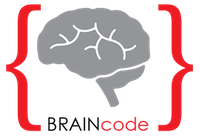Integrative analysis of the human neuronal genome, transcriptome, and more.
The human brain comprises ~86 billion neurons whose function is central to human biology. How does the human genome program dopamine neurons in health and disease? The goal of the BRAIN Cell encyclOpeDia of transcribed Elements Consortium (BRAINcode) is to provide a comprehensive map of actively transcribed elements, both protein-coding and non-coding, from specific cell types, directly isolated from human brains of controls and individuals across all stages of Lewy body neuropathology. Going beyond traditional mRNA sequencing, all polyadenylated and non-polyadenylated transcripts over 50 bp were ultra-deeply sequenced using ribo-depleted total RNA from 50,000 neurons laser-captured from more than 106 human post-mortem brains yielding 23 terabytes of reads.
We found that, cumulatively, 64.4% of the genome was expressed. 71,022 novel transcribed noncoding elements (TNEs) were discovered, many of which consistent with active enhancers, and in vivo functions in zebrafish and mouse brain, as well as in human cultured cells. Genetic variants for Parkinson’s disease, schizophrenia, and addiction were enriched in these elements. Expression Quantitative Trait Locus (eQTL) analysis revealed that Parkinson’s disease-associated GWAS variants on chromosome 17q21 cis-regulate the expression of specific enhancer RNAs in dopamine neurons.
In this initial phase BRAINcode delineated enhancers active in dopamine neurons as a primary link between genetic variation and neuropsychiatric disease. Moreover, we provide a generally useful resource for decoding neuropsychiatric disease mechanisms, and this easy-to-use web portal (http://www.humanbraincode.org) for evaluating targets for biomarkers and therapeutics in nigral dopamine neurons.
Please cite the work as below:
Dong X, Liao Z, Gritsch D, Hadzhiev Y, Bai Y, Locascio J, Guennewig B, Liu G, Blauwendraat C, Wang T, Adler CH, Hedreen JC, Faull RLM, Frosch MP, Nelson PT, Rizzu P, Cooper AA, Heutink P, Beach TG, Mattick JS, Mueller F, Scherzer CR. Enhancers active in dopamine neurons are a primary link between genetic variation and neuropsychiatric disease. Nature Neuroscience, 2018. DOI: 10.1038/s41593-018-0223-0.
For questions and collaborations, please contact Dr. Clemens Scherzer (PI) or Dr. Xianjun Dong.
